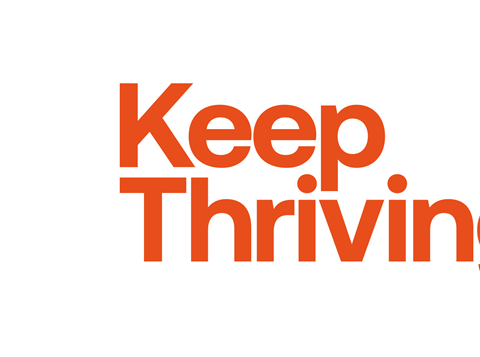Many employers are not sure how best to deal with wellbeing, or manage it properly - the gap between good and poor approaches is huge – so, this matters more than ever.
That’s why British Safety Council launched its Keep Thriving campaign; to help improve the wellbeing of workers, within and outside of the workplace, so that all of us can thrive.
Our offer of free wellbeing support to SMEs and micro-sized is now open to applications, and this time we’re holding a series of monthly workshops around the UK. See below for more information, and visit our application page here.
What is Keep Thriving?
As part of eight key calls to action, the Keep Thriving campaign is asking organisations and businesses to commit to:
- Appoint an executive director responsible for wellbeing, acting as a sponsor driving change
- Actively engage employees in determining workplace wellbeing interventions that work for them
- Adopt a holistic approach to health, safety and wellbeing, focused on training people to enable prevention and avoid poor wellbeing.
We have published a Keep Thriving manifesto, which sets out our aims in more detail, as well as a wellbeing positioning paper showing why better wellbeing matters. Find out how British Safety Council can help your organisation through its Being Well Together programme.
Apply for one of our free Keep Thriving wellbeing strategy workshops
- Worried about how the rising cost-of-living is affecting the wellbeing of your staff?
- Keen to do more to support colleagues’ wellbeing, but not sure how?
- Want to improve your team’s motivation and performance at work?
If so, and you employ up to 500 people, you now can apply to take part, free of charge, in one of our new wellbeing workshops.
These new workshops follow a popular series we held with SMEs earlier this year, though this time we are holding them face to face and around the UK.
If you wish to take part, don’t delay as places this time are limited to 20 in each workshop. Check out the dates and locations here.

British Safety Council has campaigned tirelessly since 1957 for the health, safety and wellbeing of workers globally. These workshops are part of our Keep Thriving wellbeing charitable work and we are once again open to applications.
Delivered by our Being Well Together experts, the 3-hour workshops will explore the core components of how to develop a wellbeing strategy for your organisation. One workshop each month will be held in different locations around the UK.
It’s easy, and free, to take part. Simply complete the short form here.
Support Keep Thriving
Show your support now, by completing the form below, and become part of the Keep Thriving campaign.
If you sign up here, and tick the box below, you will receive news about the campaign.

Practical tips for wellbeing in the workplace
Read more about how to encourage better wellbeing at work.




